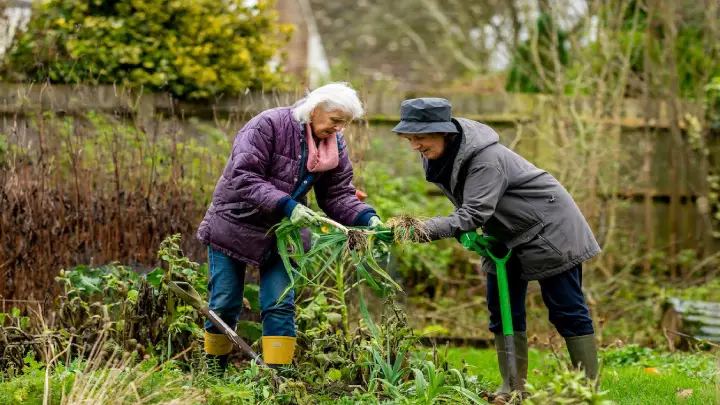As seniors journey through the stages of life, they inevitably encounter many lifestyle changes that bring forth new and unique challenges. Adapting to these changes may seem overwhelming, as they involve physical adjustments and emotional and social transitions.
However, with the right guidance and support, seniors can gracefully navigate these transformations and continue to lead fulfilling lives. In this article, we will delve into some valuable tips aimed at helping seniors adjust to lifestyle changes and embrace the opportunities that arise.
From cultivating meaningful social connections to prioritizing their physical well-being, these practical strategies empower seniors to navigate their evolving lives with confidence and vitality.
Join us on this insightful exploration as we unlock the keys to embracing change and thriving during transformation.
Table of Contents
1. Regular Checkups
Regular checkups play a vital role in maintaining the health and well-being of elderly individuals. These routine visits to the doctor allow for the monitoring of existing health conditions and serve as an opportunity to detect potential issues early on.
By adhering to a regular checkup schedule, seniors can ensure that any emerging health concerns are promptly identified and addressed, improving overall outcomes.
Moreover, these visits provide an excellent chance to discuss symptoms or changes that may require further investigation, especially if seniors served in the military or worked in the construction industry.
Why? Because these careers expose workers to asbestos, known for causing asbestos and terminal cancer called mesothelioma.
Mesothelioma symptoms aren’t evident initially, so when the disease is detected, it is often too late to treat. Therefore, prioritizing regular checkups is essential in safeguarding the health and well-being of seniors, enabling them to lead fulfilling and active lives.
2. Embrace a Positive Mindset
Embracing a positive mindset is essential for seniors navigating lifestyle changes. Rather than dwelling on the challenges, seniors can proactively focus on the opportunities that arise from these shifts. By embracing change as a natural part of life, they can alleviate anxiety and cultivate resilience.
Mindfulness exercises, such as meditation or deep breathing, can help seniors stay present and embrace the present moment with gratitude. Seeking emotional support from loved ones provides a valuable outlet for sharing concerns and receiving reassurance.
Nurturing a positive outlook empowers seniors to approach new experiences with optimism and enthusiasm. It enables them to adapt more effectively, finding joy and fulfillment in discovering a different way of living.
3. Stay Connected with Loved Ones
Amid lifestyle changes, seniors greatly benefit from nurturing strong social connections. Maintaining regular contact with family, friends, and community members cannot be overstated, as it provides a crucial source of emotional support and diminishes feelings of isolation.
To facilitate this connection, it is essential to encourage seniors to embrace technology, social media platforms, and online communities. Furthermore, engaging in local senior centers, joining interest-based clubs, or dedicating time to volunteer work can serve as avenues for forging new connections and establishing a sense of belonging.
4. Prioritize Physical Well-being
To help seniors adjust to lifestyle changes, prioritizing physical well-being is crucial. Taking care of their physical health involves regular exercise tailored to their abilities, enhancing strength, flexibility, and overall well-being.
Encourage seniors to explore gentle activities such as walking, swimming, or chair exercises, promoting physical and mental health. In addition, maintaining a balanced diet, staying hydrated, and getting sufficient sleep are vital components of a healthy lifestyle.
By prioritizing physical well-being, seniors can enhance their energy levels, maintain independence, and adapt more effectively to the changes they encounter.
These proactive steps empower seniors to lead fulfilling lives and approach lifestyle changes with vitality and resilience, supporting their overall well-being and quality of life.
5. Seek Professional Assistance
Seniors can benefit from professional guidance and assistance when facing significant lifestyle changes. Consulting healthcare providers, geriatric care managers, or social workers can provide valuable resources and insights.
These professionals can offer personalized recommendations, support navigating healthcare systems, and assistance accessing community services.
Seeking professional assistance ensures seniors have the necessary information and support to make informed decisions and adapt successfully to changing circumstances.
6. Plan Meaningful Activities and Routines
To successfully adjust to lifestyle changes, seniors must prioritize meaningful activities and establish consistent routines. Encouraging them to discover activities that bring them joy, whether volunteering, exploring creative outlets, or hobbies, can ignite a sense of purpose and fulfillment.
By incorporating these activities into a daily or weekly schedule, seniors gain a sense of predictability, aiding their adaptation to new circumstances. Setting realistic goals and commemorating milestones further nurtures a sense of achievement and motivation, making lifestyle adjustments more feasible and rewarding.
Embracing meaningful activities and routines empowers seniors to navigate their changing lives with renewed enthusiasm and purpose, enhancing their overall well-being and quality of life.
Conclusion
As seniors embark on the journey of life, they inevitably encounter lifestyle changes that present unique challenges. Adapting to these changes may seem daunting, but seniors can navigate them gracefully with the right guidance and support.
Seniors can maintain their health and happiness by prioritizing regular checkups, embracing a positive mindset, staying connected with loved ones, and prioritizing physical well-being.
Seeking professional assistance and planning meaningful activities and routines empower seniors to thrive amidst change.

